PRISONER PERSPECTIVES
Feedback we have received from incarcerated and formerly incarcerated persons.
“It would be nice to see a farm system based on Loving Kindness and not exploitation & slaughter. I personally could not be present in any area where animals are being killed. I have suffered a trauma so profound because of the offense I committed that just the thought of seeing any living thing die is unthinkable to me.”
Inmate, Joyceville Institution (Kingston, ON)
“It was a delight to read that your enterprise is looking for alternatives to the standard models of agriculture, while creating an allegory for justice. As a vegetarian, I find your case not only compelling but forward thinking. Keep resilient.”
Anonymous Inmate
“What I would like to see is the collective of federal inmates clearly state that enough is enough. No more to this madness of milking goats for China. No more to this grotesque movement away from rehabilitation. I cannot understand the persistent sponsorship of this program. The government perhaps seriously misjudged the collective opposition it would create.”
Inmate, William Head Institution (Victoria, BC)
EX-PRISON FARM WORKER INTERVIEW
“They’ve had consultations with former inmates like myself but they never listened to us. I might as well just talk to a wall. They don’t listen. They’ve already got it in their mind what they want to do. They want to make it look like we’re consulting ex-offenders just to make them look good because they’re dead set on having this goat dairy operation come hell or high water. After all the consultations and the promises and statements made and all the back-slapping and the hand-shakes and the kissy-kissy mushy-mushy stuff… it’s going to be a shit show. Pardon my language but it’s going to be a huge shit show. That’s all it’s going to be.”
PRISONER SURVEY RESULTS
In 2018, Evolve Our Prison Farms surveyed over 150 prisoners at federal penitentiaries across Canada. 75% voted for plant-based farms and animal-assisted therapy, while 25% voted for dairy. This was before it was known that prison farms would be commercial milk production for the Chinese market.
In 2021, Evolve Our Prison Farms conducted a second survey of over 50 prisoners (distribution was limited due to COVID). 94% indicated that they do not support the Correctional Service of Canada’s new prison farm model.
Comments from the survey demonstrate overarching themes: the exploitation of prison labour (frequently described as “slave labour”); the desire for correctional programming to be devoted instead to helping the community (“giving back”); the need for better pay (maximum is $6.90 per day); and prison farms won’t contribute to post-release employability.
“This proposed agribusiness is nothing more than further exploitation of prisoner labour by CORCAN and the industrial prison complex. Pay prisoners proper wages or shut CORCAN down. These new farms are inhumanitarian to the animals.”
“Resources should be devoted to helping the community. It would give inmates the ability to pay their debt to society.”
“This is just another example of the Government putting money over human life. Prisoners may not be employees BUT WE ARE NOT SLAVES!”
“The inmates who work on the farms would prefer that their free labour go to support the food banks across Canada and to feed themselves.”
“We need to do this to feed inmates and be given the opportunity to donate to the food bank so we can help the communities that we come from.”
“Exploitation direct des détenus.”
“We are inmates, not cheap labor.”
“Allez donc chier avec vos esti d’projet d’marde.”
“Our comments at La Macaza Institution Inmate committee is the same as Miss Margaret Atwood, author. Feed prisoners & local communities, not international markets! Us as inmate we do understand that an industrial Goat dairy operation would normally cause many inconvenience as for pollution and all. As for the cheap labour for that part there should be reward with bonus, it’s just the right thing to do. We do support farm in federal prison but they should put in place bonus and security health measure and also make sure that all the effort for this farming is for the local communities and to feed prisoners. NOT FOR INTERNATIONAL MARKETS.”
“Just because the supreme court says that we prisoners are not employees, does not mean that we should be treated as ‘Slaves.’ Or am I wrong?”
“I grew up in the city and would like the opportunity of working on a farm. It is an excellent way of helping the population of those in growing need within the Kingston community. How rewarding! Let’s help those at home (in Canada) first.”
“I work on the farm here at JI Min. While I have been able to acquire and sharpen employment skills, I can’t help but notice wasted opportunities to further enhance the rehabilitative value of this kind of results-driven hard work because of the looming CORCAN CSC oversights and rigid way of operating.”
“We have frames for greenhouses here that are NOT used. They should be used to grow food for here and needy in local community. Apple orchard is NOT harvested. A lot COULD be done for local community IF this place chose to.”
“CSC too slow in getting farm projects up & running. Current staff lack skills & initiative to be farm managers (nepotism). Focus on feeding prisoners & food banks. Goat project??? Not enough info. CSC keeps prisoners in the dark. Poor communication.”
“Under present pay system (no Corcan wages) I would not work for Corcan/CSC – slave wages. Also concerned about health issues as goats stink & air might be hazardous to my health. Too many questions re: health & safety. Typical CSC – Not well thought out/planned.”
“It’s an industrial operation with little benefit to anyone especially the inmate population.”
“I don’t believe that CORCAN Industries per se has the best interests of inmates in mind. It is nothing more than slave labor. Shutting down Corcan will also shut down federally sponsored slavery!!”
“I don’t think their new model has the best interests of inmates in mind. It should revert to its original model and help prisoners, instead of getting rich on inmate labour.”
“As they presently are – slave labor for one company or another – nothing to do with caring or rehabilitation. Simply want us to be used as work animals – with overhead threats – tow the line or be sent to higher security. Cheap forced labour.”
“Private businesses shouldn’t benefit from inmates labour. These kind of things will only lead to the privatizing of prison for profits; where inmates would be forced to work in unsuitable conditions instead of truly getting a chance to rehabilitate.”
Contact us to request access to more detailed documentation and analysis of our 2018 and 2021 prisoner survey results.
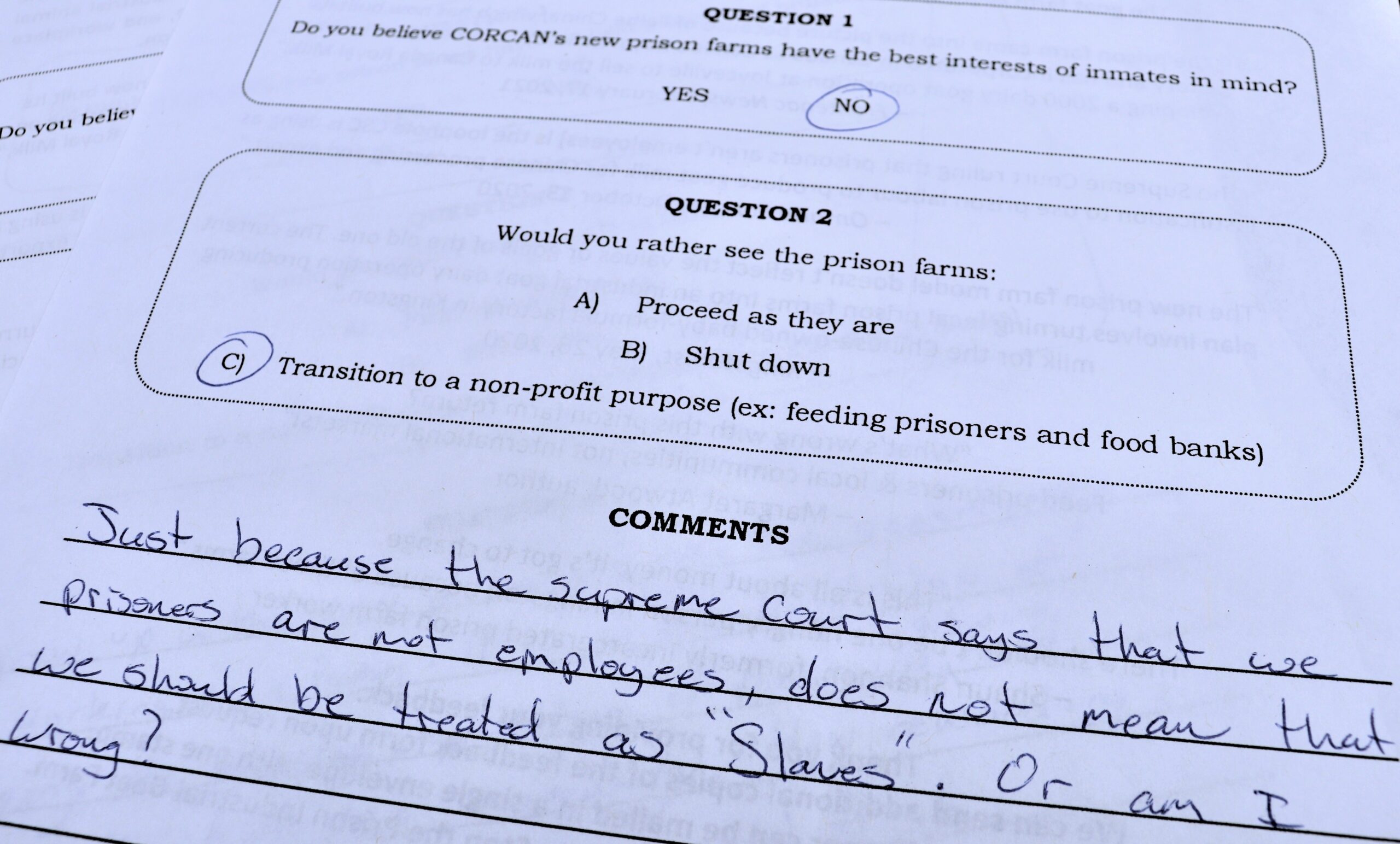
JOYCEVILLE ABATTOIR TOUR
Read about the documented violations at the Joyceville abattoir operated by the Correctional Service of Canada and Wallace Beef (see Bloody Bad Business: Report on the Joyceville Institution Abattoir).
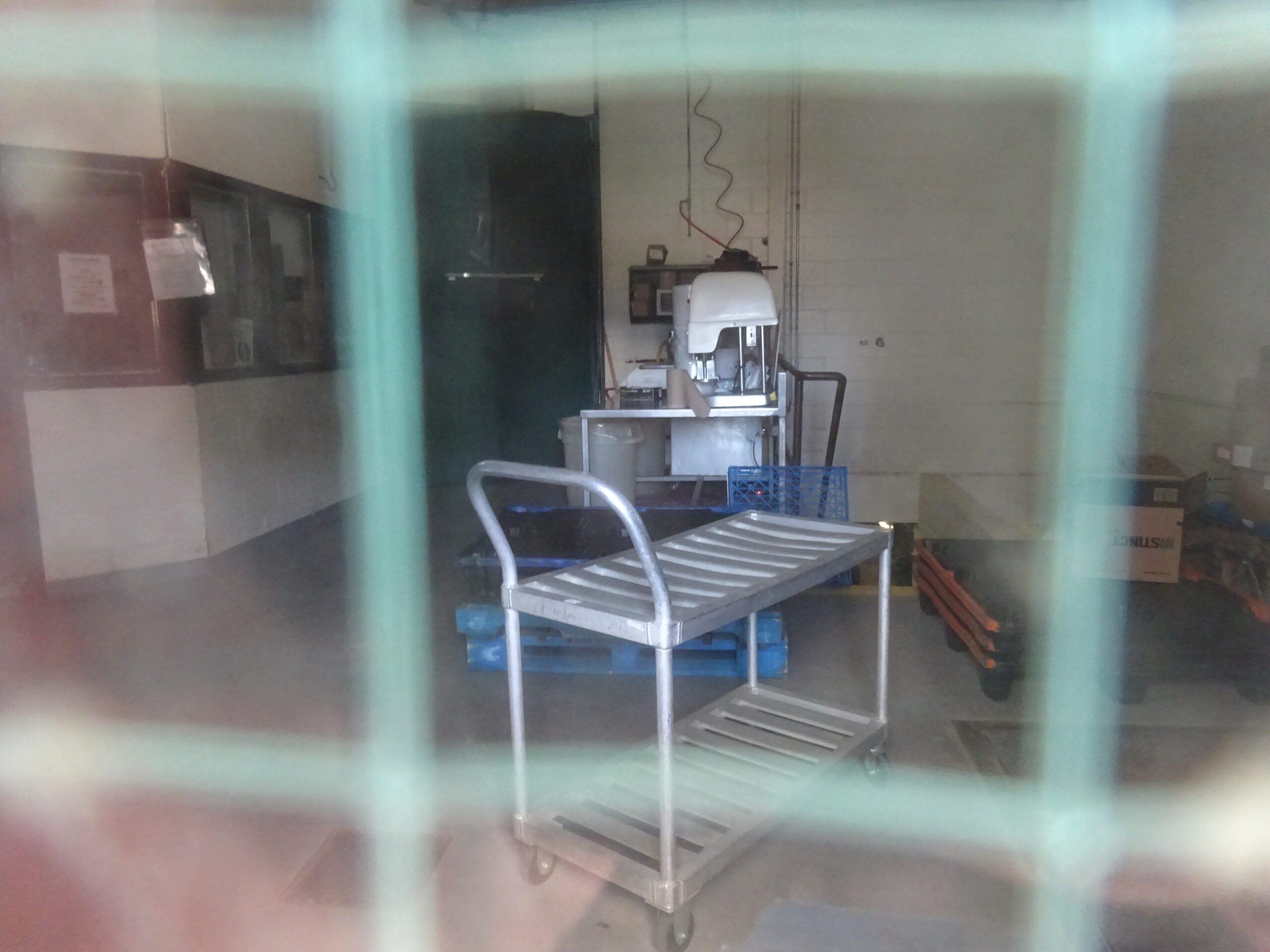
Evolve Our Prison Farms has obtained records and photographs offering an inside look at the hidden operations of this prison slaughterhouse.
Prisoners have been slaughtering and butchering animals for decades. They earn $3 per hour before deductions. They are not classified as employees, have no standard worker rights, and are not allowed to quit their jobs.
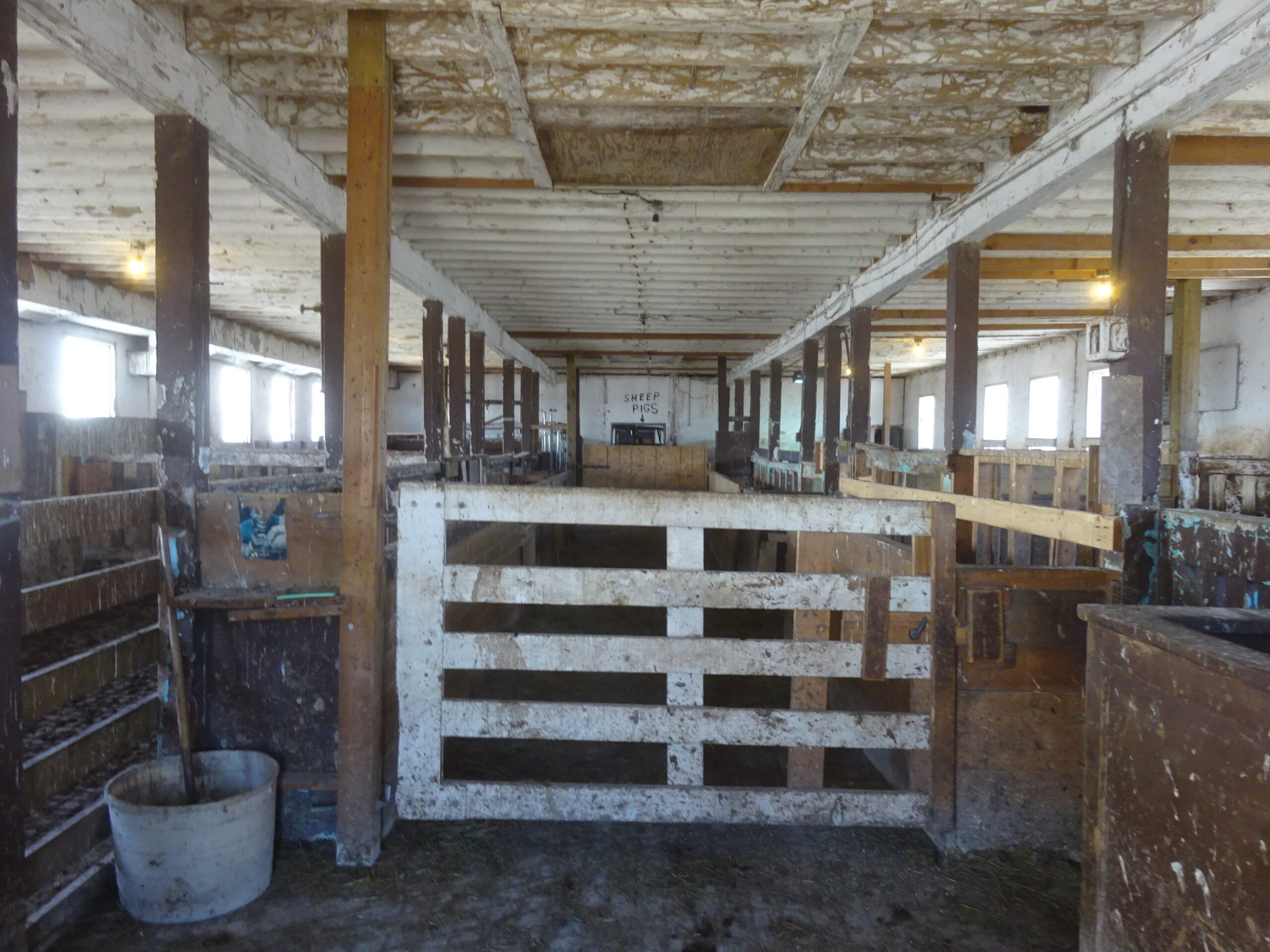
In the past, the abattoir has been temporarily closed due to improper slaughter and “questionable meat” sold to the public. Documents obtained through Access to Information reveal a long history of contraband smuggling, disrepair, and breach of CSC policies to increase the prison labour force to meet financial goals. These records, and numerous other violations, are now publicly documented.
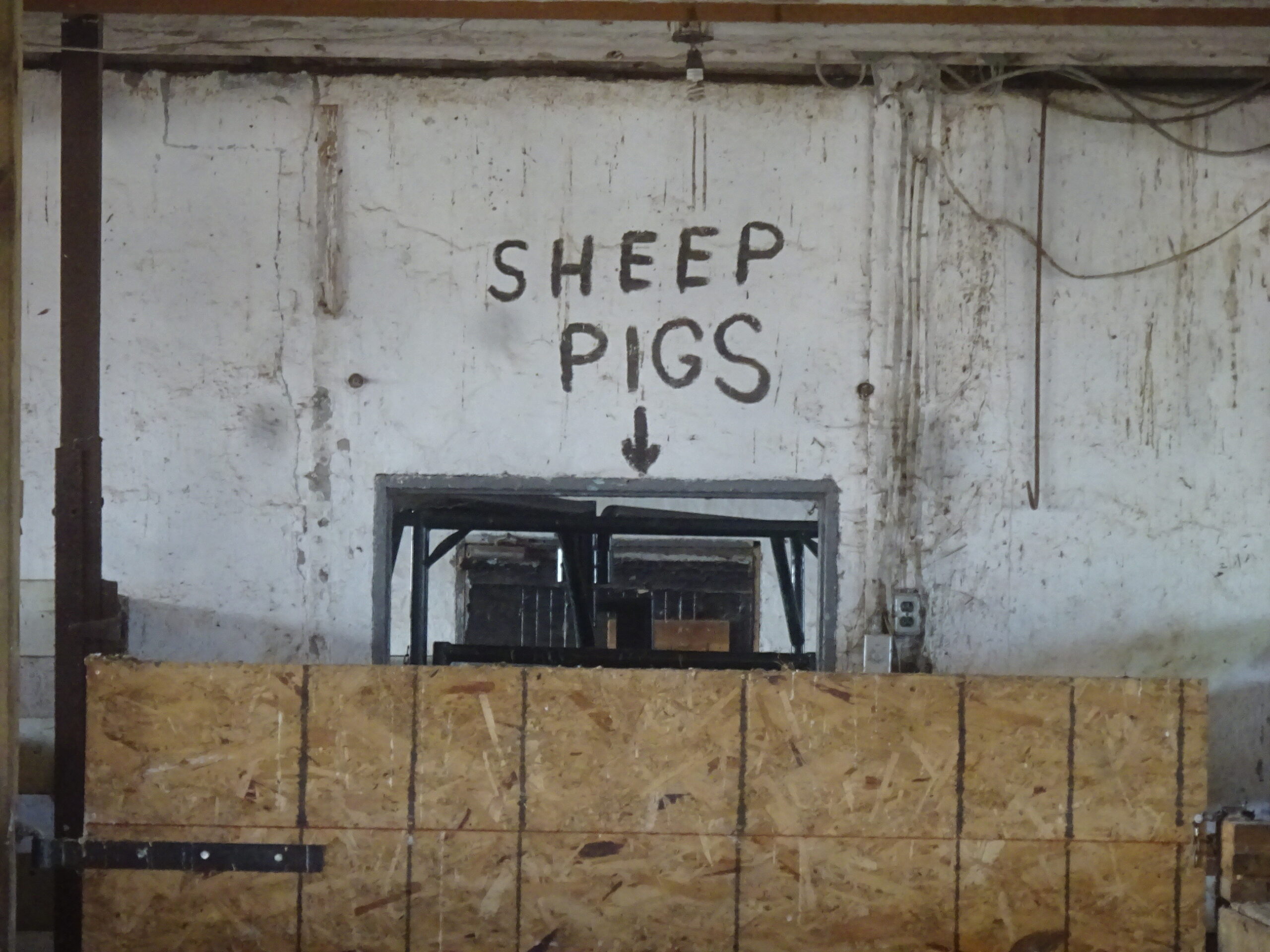
The meat from the abattoir is sold commercially, not served into prisons. Industry lobbyists claim that the abattoir is an economic necessity for some 350 businesses.
The Correctional Service of Canada’s slaughter program is a top source of institutional revenue. According to lawyer Anna Pippus, slaughter jobs are overwhelmingly filled by vulnerable populations (prisoners, ex-prisoners, migrant workers and temporary foreign workers) who do “the kind of work that most Canadians don’t want to do.”
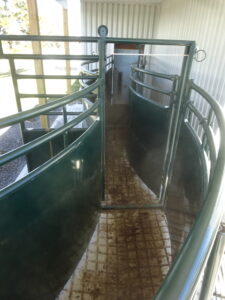
Over 30% of Canada’s federal prison population is Indigenous, making up a significant portion of the exploited work force. The Correctional Service of Canada attempted to justify this by having an Indigenous slaughter worker write a testimony claiming that the work is consistent with his cultural values.
The last contract between CSC and Wallace Beef expired on September 30, 2022, one month after the release of the report by Evolve Our Prison Farms. The contract was not renewed and the abattoir closed after 62 years in operation.
RICKY ATKINSON
The following are reminiscences from former prison farm worker Ricky Atkinson from his memoir The Life Crimes and Hard Times of Ricky Atkinson (2017). As a young man, Atkinson worked at the Frontenac Institution prison cow dairy:
I had never been this close to a cow in my life. All of my assumptions about how soft and cuddly cows were went right out the window when I stepped up behind one, grabbed its shitty tail and got a hard kick in the shins.
I made my way down the line, hating every minute. They kicked me. They crushed me against the stall railings. They shit all over. If you weren’t quick to grab them, they slapped you in the face with their shitty tails.
It wasn’t easy to adjust to being around cows. I’d been on milking duty a couple of weeks when one of the cows stepped on my foot. I began to hit it with punches like a professional boxer. I don’t know why I did it but for some reason I needed to let off some steam. The next day, another cow crushed me against a railing and I rolled a series of punches on its side and on its head.
After a few days of this, the cows would moo and prance around nervously when I came into the barn, making it harder to milk them.
One day, a cow coughed when I was behind it. Green shit flew out of her ass and all over my face. I tore into that cow with my fists. Next thing I knew, the camp boss, Mr Kirby, was standing beside me.
“Atkinson, I knew something was up. Milk production is down. You hit a cow again, I’ll kick your ass.”
Later, Atkinson worked at the Joyceville abattoir:
My immediate job, however, was preparing cows for slaughter. It was my job to decide which seven cows would end up on death row on any given day. It was also my habit, while they waited to head down that ramp to their fate, to read the Bible aloud to them. ….Hearing a voice calmed them and helped me hone my speaking skills. I’d grown up a lot since the days when I was hitting the poor beasts with my fists.
PRISON MAGAZINE
In late December 2017, Out of Bounds received a presser from Calvin Neufeld of Evolve Our Prison Farms (EOPF), a Kingston-based coalition of citizens united by concerns about animal agriculture’s profound ethical, ecological and health costs. The possible renewal of Canada’s prison farms represents a unique opportunity to transition from animal agriculture to an “evolved” model centered in ethical and environmentally responsible plant based farming.
In 2009, the Conservative government elected to shutter all six prison farms. They based their decision upon evaluations that the farms were too costly to operate, ill prepared to provide modern job skills, and fit well with its “tough on crime agenda”, as they considered the farms “soft” on prisoners. Inmate advocacy groups criticized the move suggesting that the program offered both rehabilitation programming and life skills training as well as producing food for prisons.
The Liberal government has recently shown interest in restoring prison farms to the former model of animal agriculture, specifically dairy and meat production. This form of agriculture is in clear and direct conflict with rehabilitative and therapeutic goals. It is also an inefficient and environmentally unsustainable form of food production. EOPF has persuasively put forward an alternative model of innovative plant-based prison agriculture, which could be enhanced by farmed animal sanctuary as human-animal therapy. This has advantages environmentally, ethically and financially (costing less for the government to implement and operate, while being better aligned with current job market realities).
Over the past year, EOPF has been meeting with government representatives and we have succeeded in getting our proposal officially on the table under consideration at the highest level. This is a critical time, as a decision is anticipated in the coming months. Mr. Neufeld stated, “We believe that prison farms can form the foundation of a better, healthier, more sustainable and more compassionate future.”
In the meantime, EOPF is working hard to raise public awareness of the issues. Animal agriculture is neither ideal nor necessary to prison farms. It fundamentally undermines the rehabilitative process as it involves prisoners in the manipulation of sexuality (forced insemination), the breaking of familial bonds (separating infants from their mothers), and, of course, slaughter. In Kingston, where the government’s initial focus is, there is still an on-site slaughterhouse where prisoners continue to be trained.
Animal agriculture has been flagged by the United Nations as one of the most significant global contributors to climate change, greenhouse gas emissions, water use, pollution, deforestation and soil degradation, where the consumption of animal products is directly linked to a wide range of illnesses including cancer and heart diseases – the leading causes of death in Canada.
Evolve Our Prison Farms is proposing an alternative to the old prison farm model: innovative plant based agriculture (mixed crops, vegetables, fruit and nut tree plantations, greenhouses, permaculture) and farmed animal sanctuary (permanent, non-exploitive care) for any animals brought onto the farms. This has all the benefits (and more) of the old operations, without the drawbacks and conflicts of animal agriculture. As the government deliberates on which model to adopt, the example Mr. Neufeld and his team have proposed creates an allegory for justice. Environmental justice, animal justice, prisoner justice. These farms can do more than just produce food for prisoners. They can form a symbolic as well as practical foundation for a healthier more sustainable and more compassionate future for us all. Prisoners can lead the way to our better future. There is something truly touching and inspiring about that, and the way prison sanctuary exemplifies the crossroads between incarceration and freedom, in both metaphor and literal application.
Evolve Our Prison Farms sees the benefits of “evolved farming” as:
– Rehabilitation and reintegration
– Ecological sustainability
– Secure and healthy food
– Caring and connected communities
– Fiscal responsibility
Regarding the coalition, Franceen Neufeld and her son Calvin, in collaboration with writer and researcher Sue Donaldson of Queen’s University, started Evolve Our Prison Farms. The coalition has grown to include a wide range of supporters across Canada and internationally: farmers, philosophers, environmentalists, animal advocates, social workers, academics, lawyers, former prisoners and more. Even prison abolitionists and Corrections staff find common ground in recognizing the merits of the Evolve proposal. It unifies across personal, professional and political spectrums.
In building a strong evidence based case for the government, EOPF have recruited a number of statements from experts, whose independent research supports our proposal, including criminologists, psychologists, climate change scientists, sanctuary operators and agricultural innovators.
We at OBM firmly support this move and trust that adoption of this model happens quickly. We understand that this is far from a done deal but it is a good news story that we will watch very closely. It is our sincere hope that the Liberal leadership will see to correcting some of the missteps of the previous government, opting for rehabilitative rather than punitive measures.
PRISON SLAUGHTERHOUSE WORKER ACCOUNT
The following statement was sent to us from a prison slaughterhouse worker at Joyceville Institution. It was originally written for an institutional elder, and reveals the Correctional mindset that humane-washes the “rehabilitation” of prisoners through the exploitation and slaughter of animals. Click here to read our response.
To: Whom It May Concern
During my incarceration, I have worked with, or within, most of the CORCAN farming operations that functioned in the Kingston region. Many of the responsibilities of the farm were not limited to simple maintenance, but also had heavy involvement in preparing the fields, planting, harvesting, milking assistance, birthing calves, removal of carcasses, egg collection, chicken collection, pest/vermin control.
I began working at the abattoir in late November of 2017.
As a man, and even more so, as an aboriginal man, I was brought up with the understanding of the importance of being able to provide for your family and community, in a positive way. While working at the abattoir, I can at least provide for someone’s table. All human-consumable meat is sent along for further processing, the hides are picked up by a tanner, entrails, hooves, heads and such are processed by a local mink and raw dog food producer.
Working at the abattoir provides a position of trust, with daily off perimeter clearance. I’m not just a number, following people around with a bloody mop bucket and a sweat towel.
This position shows the importance of team work in accomplishing a task, in a safe work environment, demonstrating safe knife handling work and proper knife sharpening.
I am more fully able to understand the full cycle of life. Recognizing and realizing the moment when the spirit returns to the spirit world, leaving the physical body behind to fulfill its purpose. Knowing the importance of acknowledging its life and not bringing fear into an animal before harvesting it.
Watching the raven appear, like clock-work, after the render truck has left, and collect its tithe. It gives me a better sense of purpose, with real responsibilities, and removes me, even for a short period of time, from the very mundane, thought numbing, brain killing, drone producing, negative surroundings and attitudes that exist in prison life.
Meegwetch
_. _.
THE SAGA CONTINUES
By Christian C., William Head Institution (Victoria, BC)
Every inmate should care about being exploited, used as a vehicle to move deals forward from which we receive absolutely no benefit. Do you remember when the farms provided actual benefits like feeding inmates? What are the advantages in slaving away for some multinational when at the end of the day you cannot wash the stink of it out of your clothes; at least you get three bucks for your trouble.
Let us stop pretending and tiptoeing around what it really is. It is just another self-serving example of narrow-minded thinking used to provide opportunities to those with the deepest pockets.
What I would like to see is the collective of federal inmates clearly state that enough is enough. No more to this madness of milking goats for China. No more to this grotesque movement away from rehabilitation. No more selling every last reward to the highest bidder. We are expected to work, deal with the sickening side of processing, and clean up the mess without receiving a drop of milk for ourselves.
I cannot understand the persistent sponsorship of this program. The government perhaps seriously misjudged the collective opposition it would create.
It is a difficult journey working your way through prison life. Adding the burden of offensive and potentially harmful “rehabilitative practices” is tantamount to a kick in the nuts.
WHAT A FARCE!
By George Fraser, Bath Institution (Kingston, ON)
[Excerpts from “Employability Hurdles for Inmates Reintegrating on Release” published in Out of Bounds Prison Magazine, Winter 2021]
What a farce!
In the February 28, 2018 Federal Budget, $4.3M was committed to restore the prison farms at the Joyceville and Collins Bay institutions for the reason(s), “to provide federal inmates with training opportunities to acquire new skills while preparing for employment and successful reintegration and rehabilitation into the community.”
Really, this is laughable!
Especially when one considers that the local Member of Parliament in the Kingston area where the prison farms are located and the CSC ad hoc prison farm advisory group are touting the reactivation of CSC prison farms as a great step forward. What BS!
According to CBC News reports, “The aim is to get the farms up and running in late 2018 beginning with 33 cows; the barnyard would eventually expand to include some chickens, pigs and possibly a colony of bees.” Really, you just can’t make this stuff up!
Now put the prison farm $4.3M stimulation package in the 2018 Federal Budget into context with the March 22, 2017 Federal budget when the Finance Minister said, “current and meaningful 21st Century employment training is in crisis mode.”
The $4.3M 2018 Budget commitment to re-open shuttered prison farms “to provide federal inmates with training opportunities… in a barnyard” is without either justification or merit. Using a “farm” metaphor, this is “hogwash”!
Time for a reality check!
Corcan’s “dumb labour” employment training for rust belt shattered industry has no place in the 21st Century of artificial intelligence. The farm labour experience does not match the needs of employers on the outside for anything other than being farm labourers. The fact of the matter is that Millennials do not and will never aspire to pick apples or muck stables.
In Summary:
Correctional Service Canada’s failure to provide 21st Century employment and employability skills is cheating prisoners the opportunity to successfully reintegrate on release.
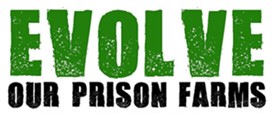

SOCIAL WORKER ACCOUNT
Evolve Our Prison Farms interviewed a social worker in Kingston who has worked with prisoners and who points out that this is a vulnerable population already traumatized by the experience of incarceration as well as any former traumas in their life that may have contributed to their incarceration. Involving them in the exploitation of animals further traumatizes and re-victimizes this vulnerable population.
A social worker colleague volunteered for a Kingston food bank. Some years ago this colleague received a call from Joyceville Institution saying that they had meat they could donate to the food bank if she could pick it up.
To her surprise, she had to enter the abattoir, an experience she described as “horrifying… the stench, the mess, blood everywhere.” The man who met her said they had just slaughtered a cow, apologizing for the sight and the smell. He handed her a box of raw unpackaged beef to carry out. The social worker described the whole experience as “traumatic.”